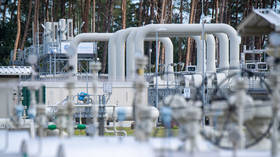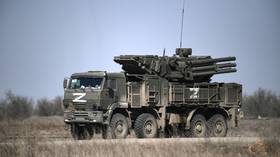Estonia wants NATO to expand missions

Estonia’s Defense Minister Hanno Pevkur has called on NATO to increase its patrols of the Baltic Sea, not only above but also below the water, after the recent explosions that knocked out the Russian Nord Stream 1 and 2 gas pipelines.
In an interview with Germany’s Die Zeit newspaper on Wednesday, Pevkur accused Russia of blowing up its own pipelines in order to intimidate the EU and to turn its attention away from the ongoing military conflict in Ukraine.
“The only state that has an interest in this sabotage is Russia,” the minister stated, adding, however, that there’s no evidence to back up the accusation.
Asked about how vulnerable the Baltic states were to underwater attacks such as the apparent sabotage of the Nord Stream pipelines, Pevkur noted that NATO already conducts “air policing” over the Baltic Sea and should now think about “sub policing” or underwater surveillance.
The minister explained that the US-led military bloc has extensive air and ground surveillance capabilities but doesn’t know what is going on underneath the ocean surface. He expressed hope that Finland and Sweden, who are each awaiting NATO membership, will be able to provide such detection systems.
Danish authorities reported leaks on both the Nord Stream 1 and 2 natural gas pipelines on September 26 after the operator experienced loss of pressure in the system. Danish and Swedish authorities later said a series of undersea explosions had been detected near Bornholm Island in the Baltic Sea.
While the investigation into the cause of the accident is ongoing, it is widely considered to be the result of sabotage. Some Western and Ukrainian officials have accused Russia of destroying its own pipelines, while Moscow has pointed the finger at the US as the potential culprit.
Shortly after the incidents, former Polish foreign minister Radek Sikorsky posted and then deleted a tweet implying the US was behind the explosions of the pipelines connecting Russia to the EU through Germany.
The Nord Stream pipelines have been at the heart of the energy standoff between Moscow and Brussels amid the Ukraine conflict in Ukraine. According to Russia’s gas giant Gazprom, the pipes have been seriously damaged but can be restored with “time and appropriate funds.”













